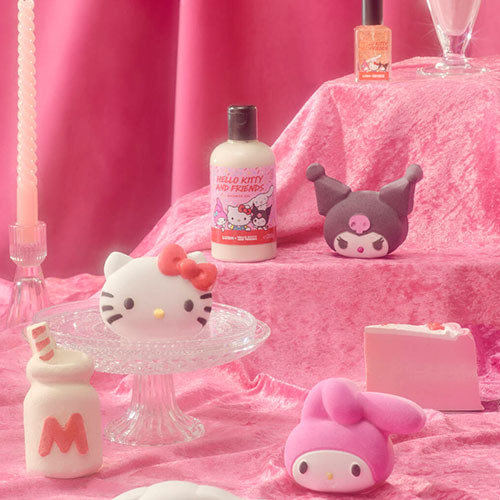ViacomCBS Consumer Products has unveiled the results of its ‘More Than Dolls’ study, which was commissioned to examine diversity in the dolls category and factors that fuel the purchasing decisions of Black, Hispanic, White and Asian mothers.
Inspired by the pivotal doll test conducted by Drs. Mamie and Kenneth Clark in 1947, More Than Dolls delves into diversity in the doll category, showcasing the positive impact that the greater availability of diverse dolls has had on Black, Hispanic and Asian girls, while highlighting the strides that still need to be made to fuel ongoing changes to with dolls that offer authentic representation and aspirational role models.
“ViacomCBS Consumer Products is committed to creating products that speak to and depict the full spectrum of diversity in the world consumers live in,” explained Pam Kaufman, president consumer products at ViacomCBS. “Through our ‘More Than Dolls’ study we aim to inform and help guide our amazing partners across the consumer products industry, where we have the ability to make a significant impact and contribute to positive and long-lasting social change.”
Ameeta Held, vp of insights and business strategy at ViacomCBS Consumer Products, added: “Dolls are more than just toys, they are reflections of our society, showcasing the cultural standards of beauty that so many young girls internalise. The relationship that dolls have to girls’ self-esteem and their perceptions of themselves is a powerful one. It plays an important role in the development of their own aspirations and dreams.”
Key findings from the study include:
- When surveyed to find out what girls owned in terms of the perceived race and ethnicity of their dolls the results were: Black girls were most likely to own dolls that reflect their own race; both Hispanic and Asian girls tended to own a diverse mix of dolls, followed by white dolls; white girls owned predominantly white dolls by a wide margin (61% owned predominantly white dolls); and while a diverse mix of dolls ranked as their number two choice, they were the least likely to own diverse dolls.
- 51% of mums surveyed agree they have recently become more conscious of the choices they make around the dolls they purchased this past year.
- 66% of mums said they encourage their daughters to play with dolls of a different race/ethnicity than their own.
- 77% of mums feel that having dolls of diverse race/ethnic mix can help their girls learn about racial and cultural diversity.
- The number one driver of doll choice among girls surveyed was that the doll looked like them. It was also the top driver of doll choice for mums.
- However, 52% of Black mums and 49% of Hispanic mums say there are not enough dolls of their race/ethnicity in general.
- It also extends beyond just appearance, as the doll’s identity was also important to the mums/daughters. Elements like clothing/accessories, the doll’s name, profession/hobbies and reflections of her culture all needed to be authentically relatable.
The More Than Dolls study included surveys with 900 mothers and their daughters (2-9), as well as interviews and video diaries to expand on the findings. The questions explored what kind of dolls the girls had and why, how they play with them, and unmet gaps in the marketplace.
Want to read more news like this? Simply sign up to our daily digest by clicking here. You can also follow @LicensingSource on Twitter and @licensing_source on Instagram.































